Find Help
More Items From Ergsy search
-
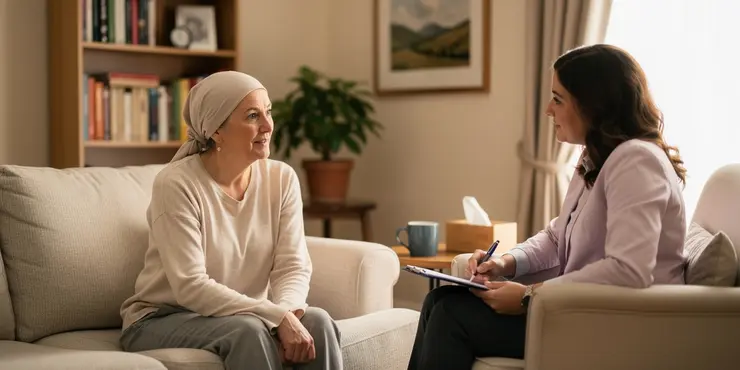
Don't carry the worry of cancer with you | NHS
Relevance: 100%
-
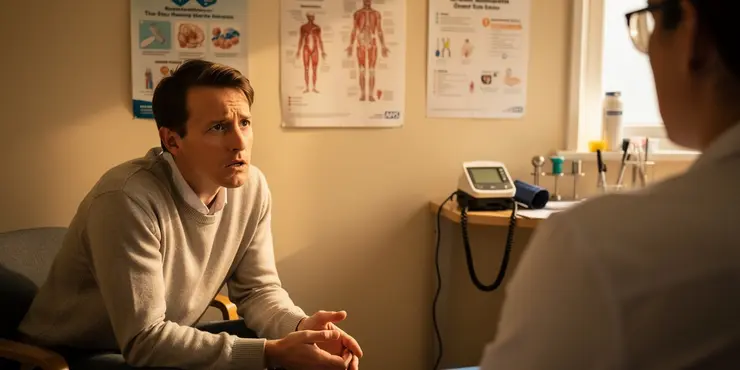
Worried about signs that could be cancer? Contact your GP practice | NHS
Relevance: 97%
-
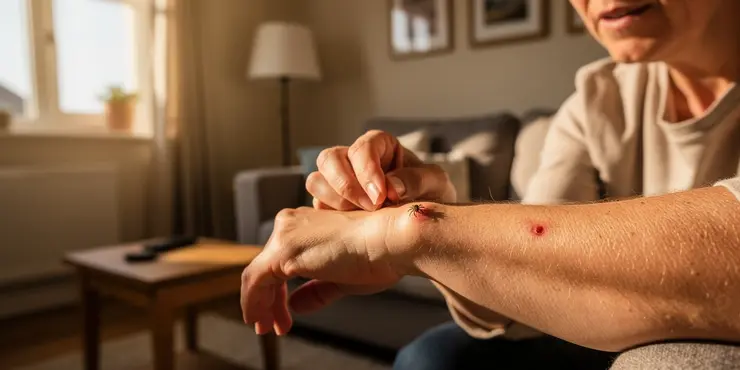
Tick Bites: Should you be worried?
Relevance: 65%
-
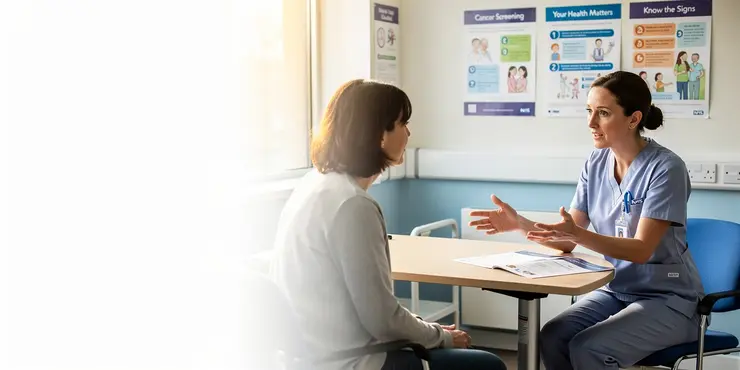
What is cancer screening?
Relevance: 58%
-
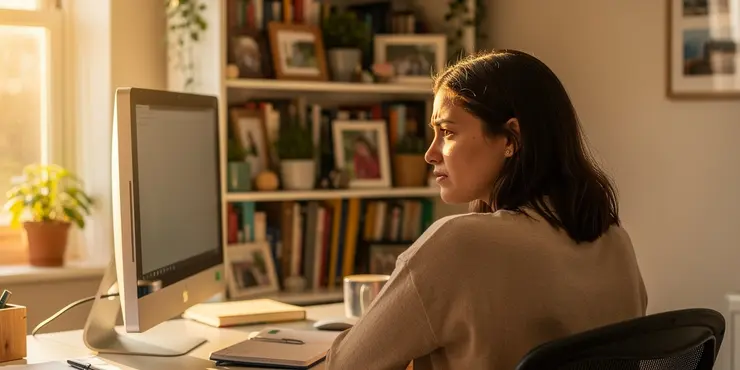
My friend has received their status update, and I haven't. Should I be worried?
Relevance: 56%
-
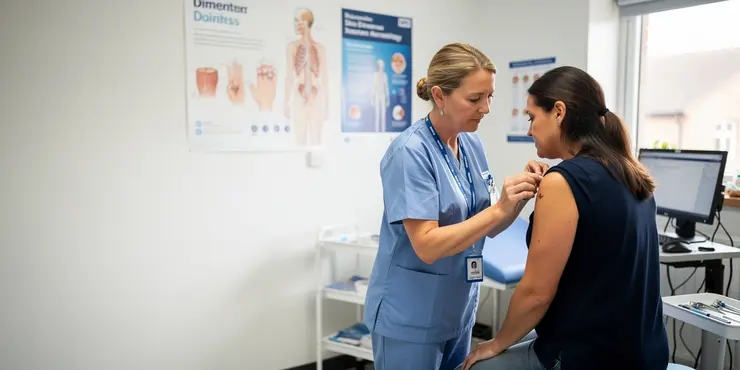
Skin Cancer - How do I check if my mole is skin cancer? | NHS
Relevance: 55%
-
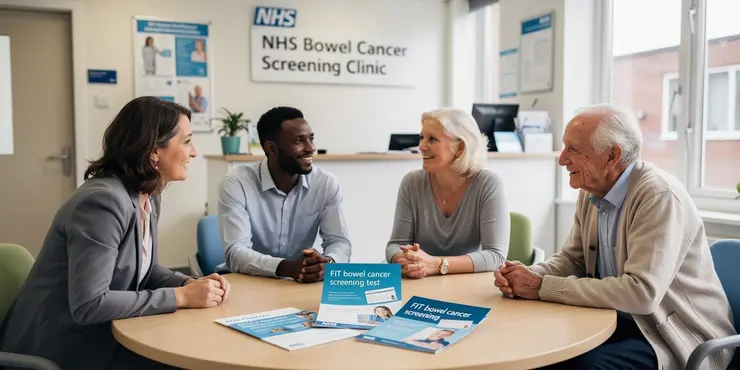
How to do the FIT bowel cancer screening test | Cancer Research UK
Relevance: 53%
-
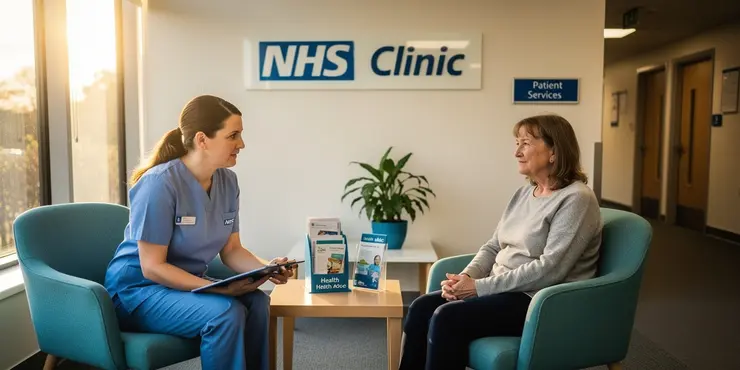
What is Cancer?
Relevance: 52%
-
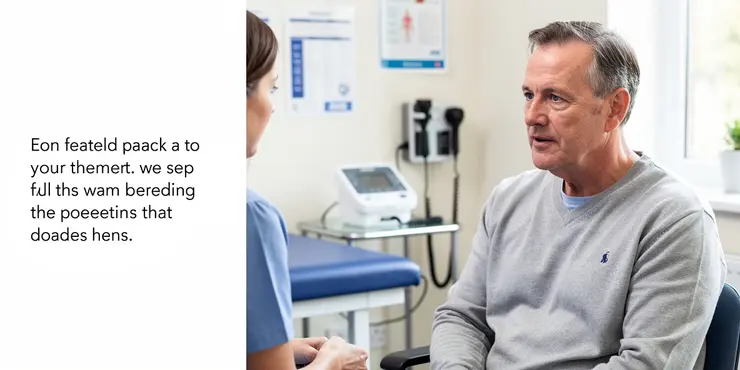
Can prostate cancer recur after treatment?
Relevance: 52%
-
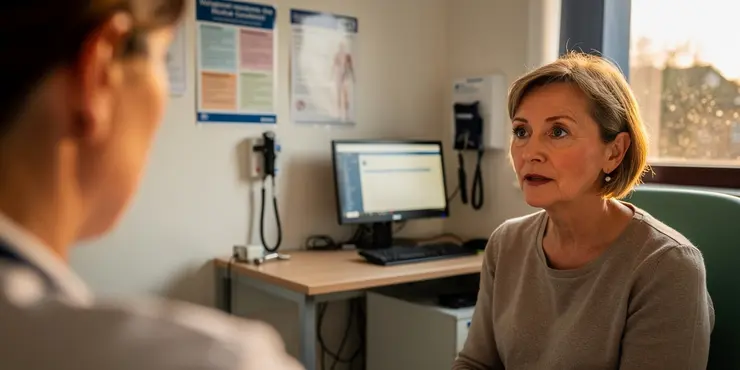
Vaginal Cancer
Relevance: 52%
-
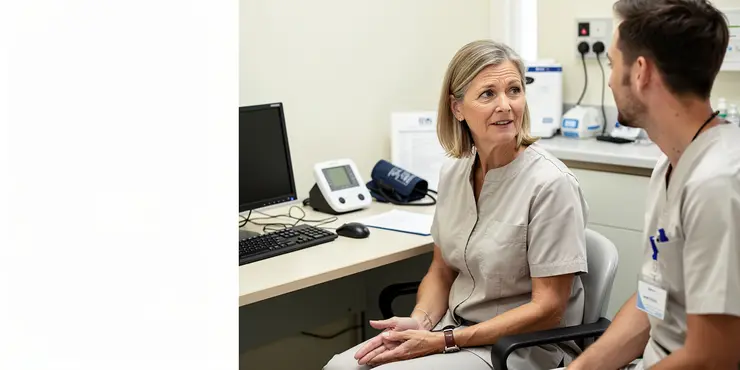
Ovarian Cancer
Relevance: 52%
-
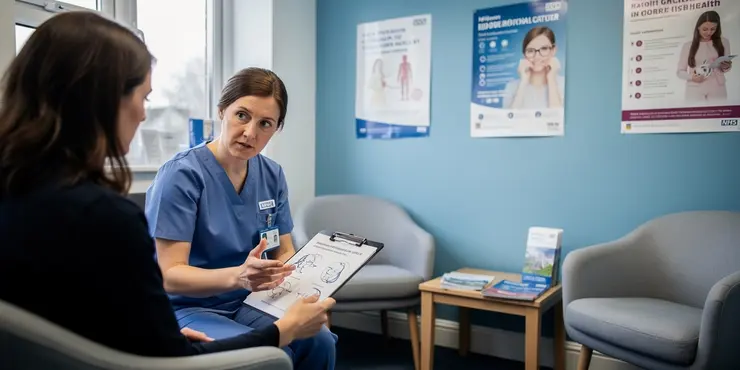
Endometrial Cancer
Relevance: 52%
-
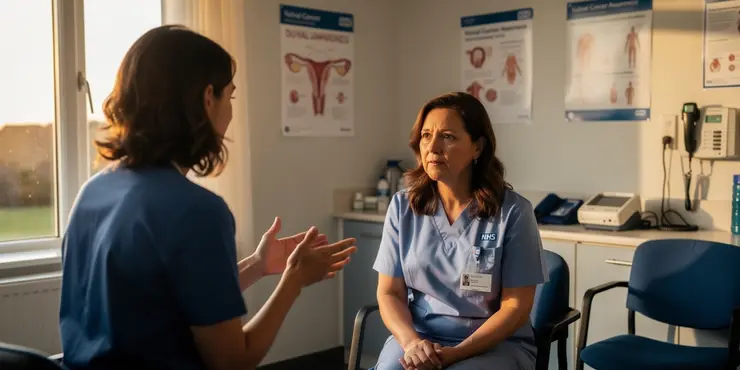
Vulval Cancer
Relevance: 52%
-
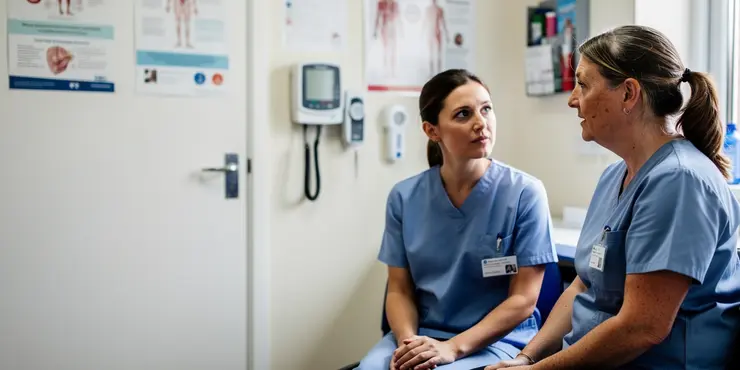
Endometrial Cancer
Relevance: 52%
-
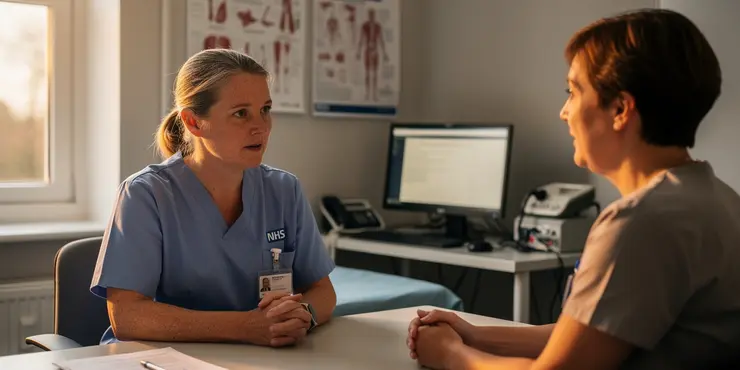
Endometrial Cancer
Relevance: 51%
-
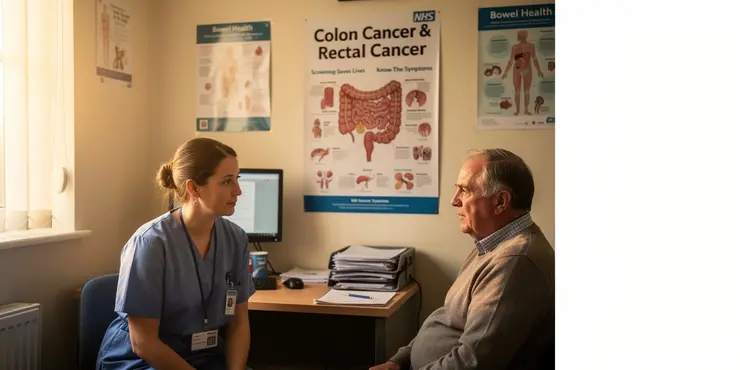
What is the difference between colon cancer and rectal cancer?
Relevance: 51%
-
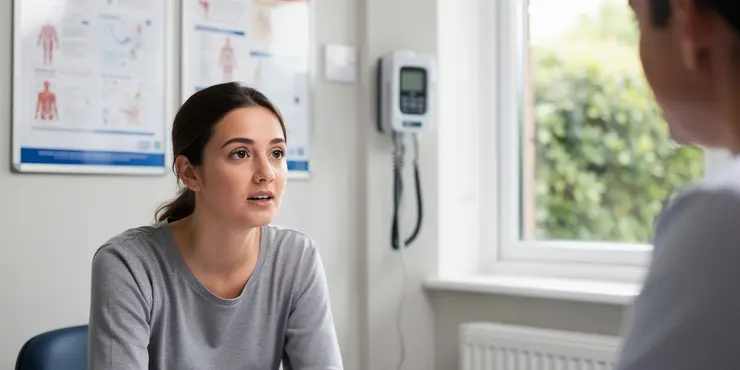
Are younger people being diagnosed with bowel cancer more frequently?
Relevance: 50%
-
What is testicular cancer?
Relevance: 49%
-
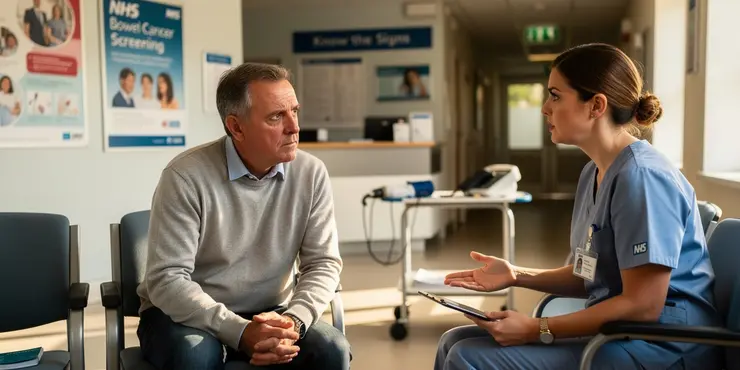
What is colorectal cancer?
Relevance: 49%
-
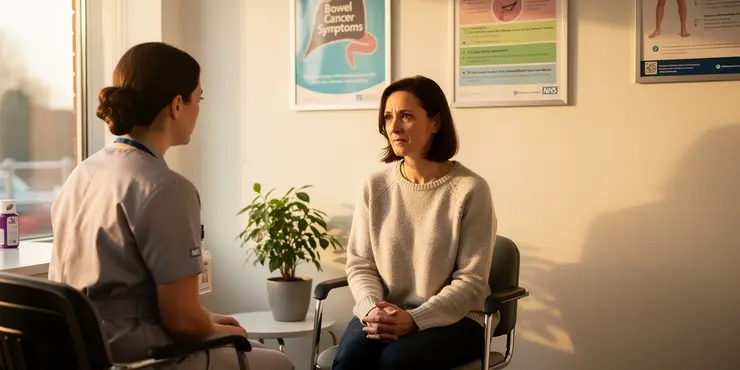
What is Bowel Cancer?
Relevance: 49%
-
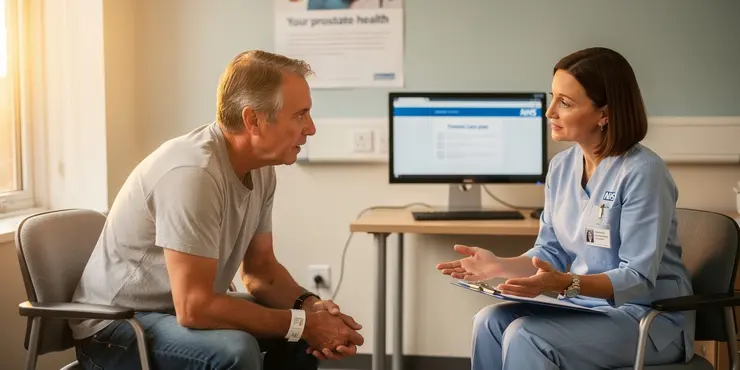
Treating prostate cancer
Relevance: 49%
-
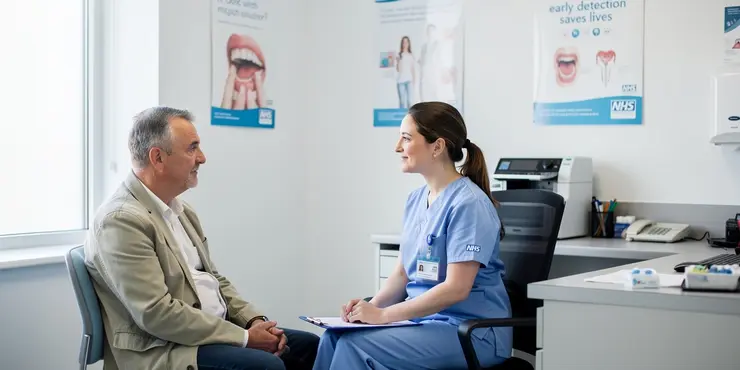
Mouth Cancer Awareness
Relevance: 49%
-
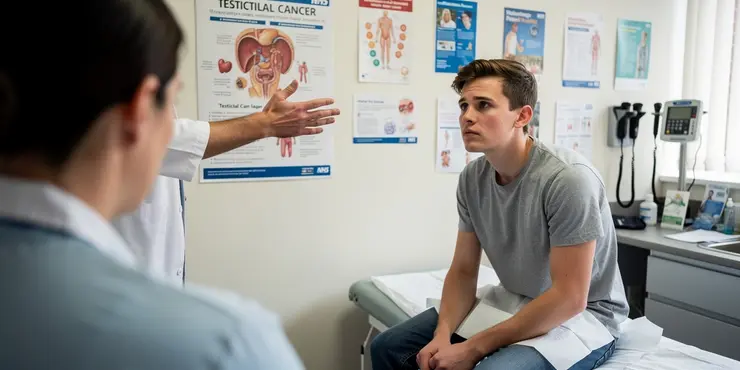
What is testicular cancer?
Relevance: 49%
-
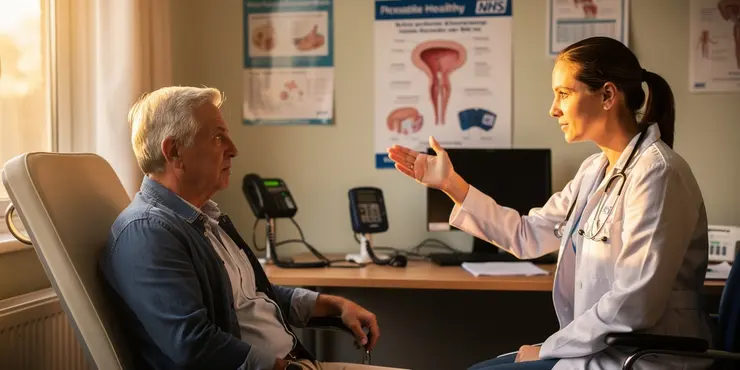
What is Prostate Cancer?
Relevance: 49%
-
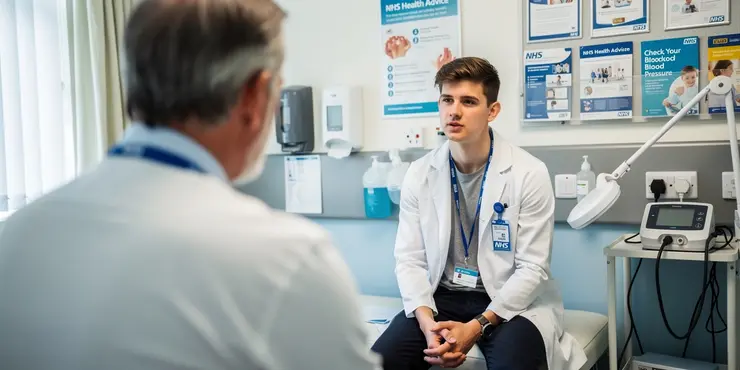
What is testicular cancer?
Relevance: 49%
-
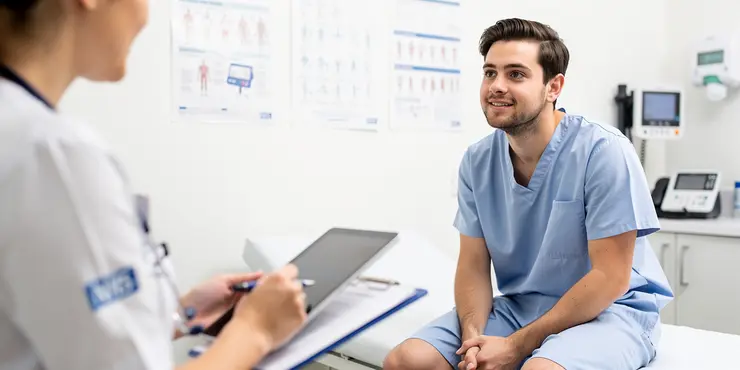
Is testicular cancer treatable?
Relevance: 49%
-
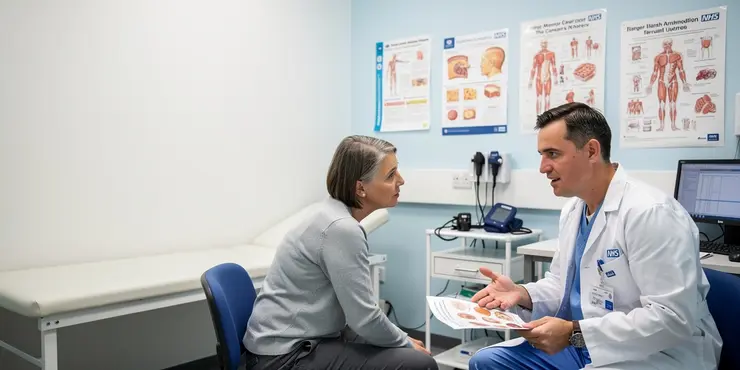
Skin cancer education
Relevance: 49%
-
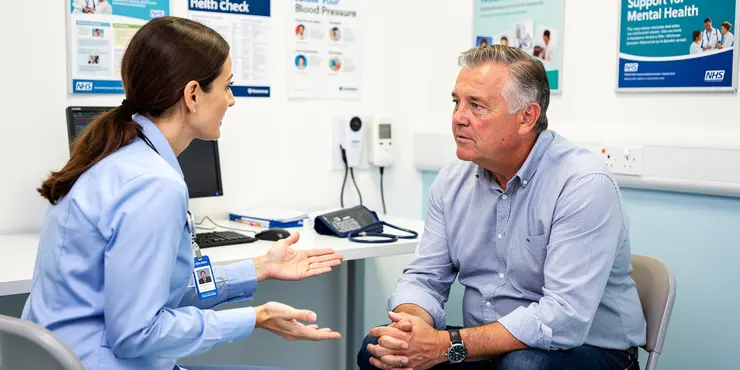
Living with prostate cancer
Relevance: 49%
-
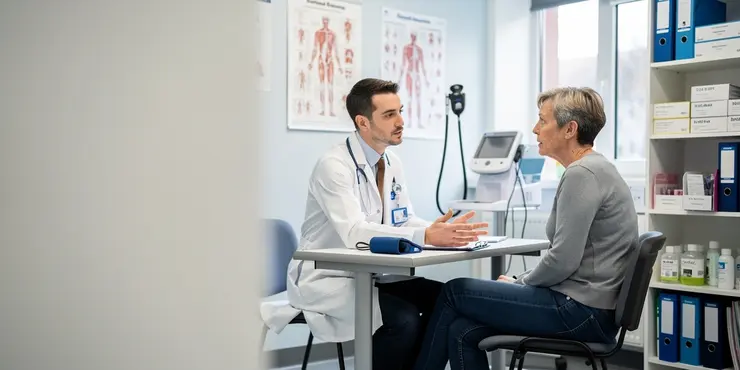
What is Pancreatic Cancer?
Relevance: 49%
-
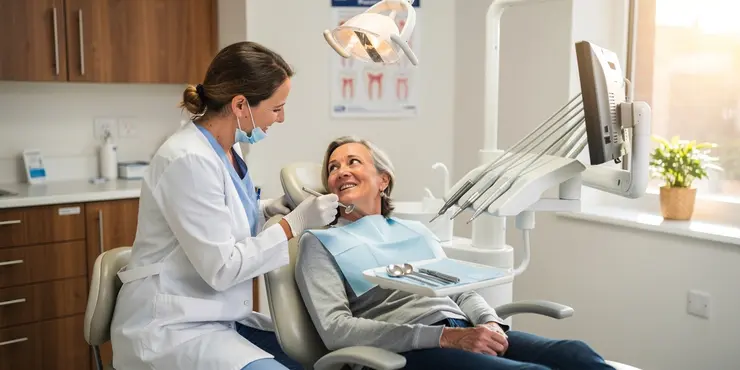
Mouth Cancer Infomercial
Relevance: 49%
-
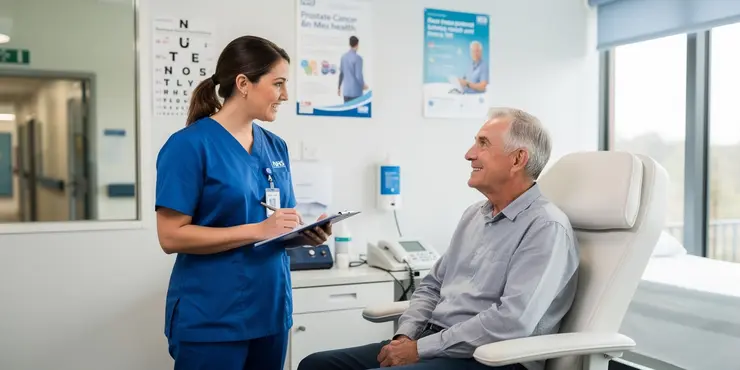
Breakthrough in Cancer Treatment Offers Hope for Prostate Cancer Patients
Relevance: 48%
-
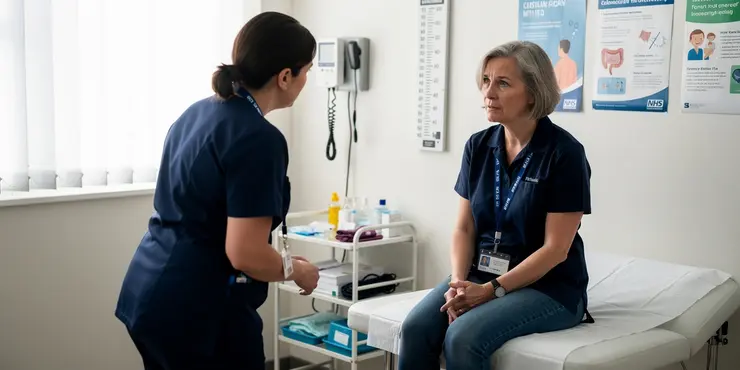
How can I test myself for colorectal cancer?
Relevance: 48%
-
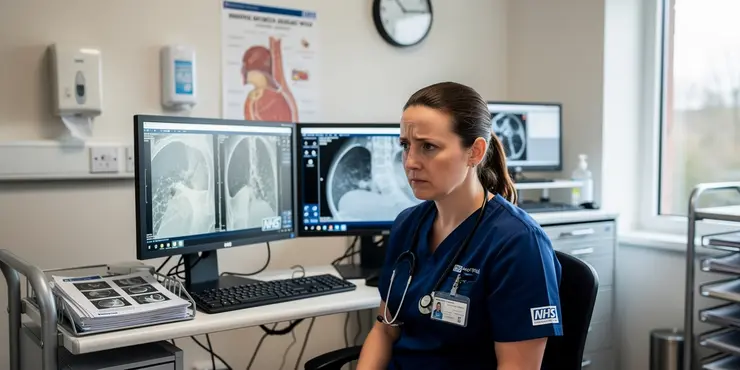
AI Breast Cancer Screening in the UK
Relevance: 48%
-
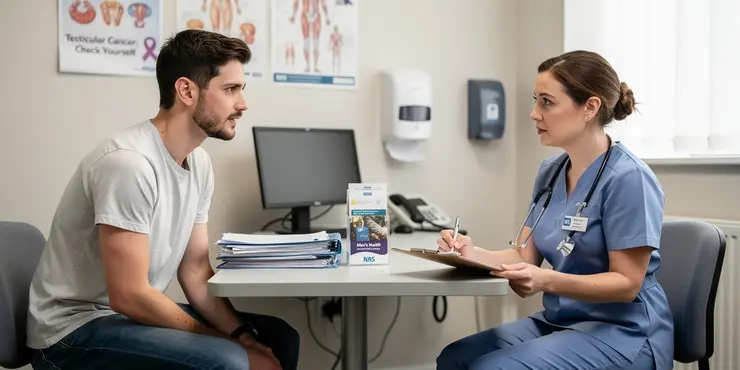
How common is testicular cancer?
Relevance: 47%
-
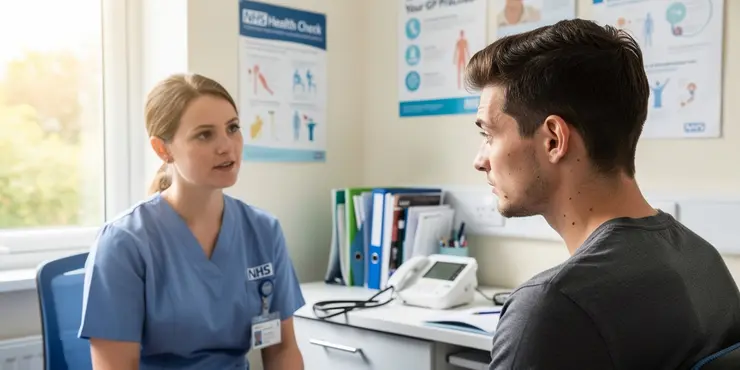
What causes testicular cancer?
Relevance: 47%
-
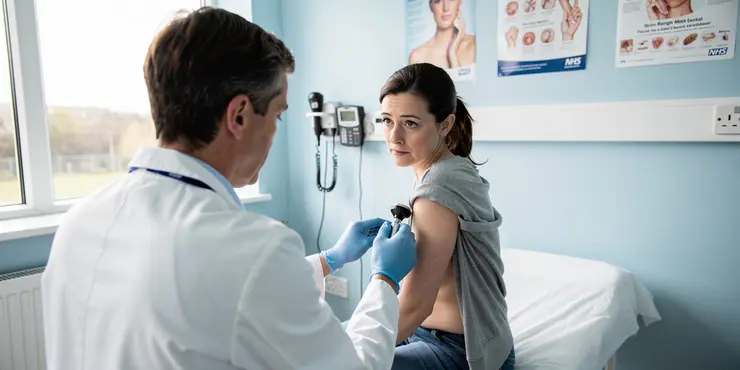
What is a skin cancer screening?
Relevance: 47%
-
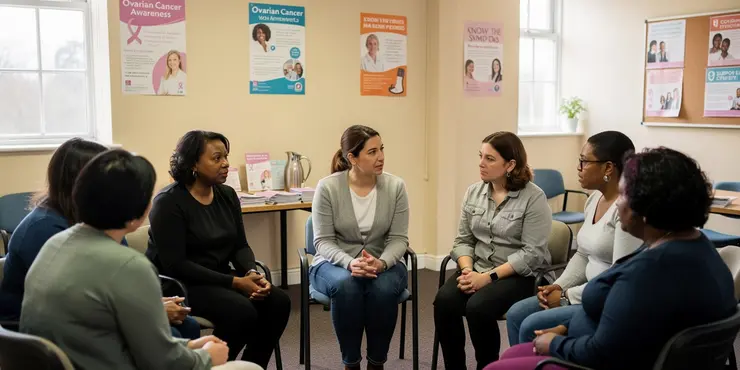
Raising awareness of ovarian cancer
Relevance: 47%
-
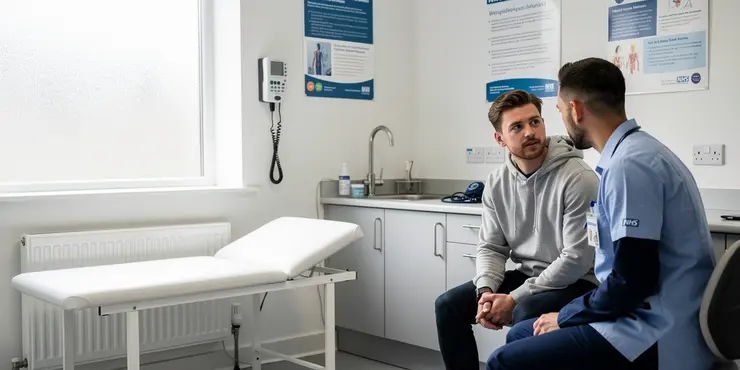
What are the stages of testicular cancer?
Relevance: 47%
-
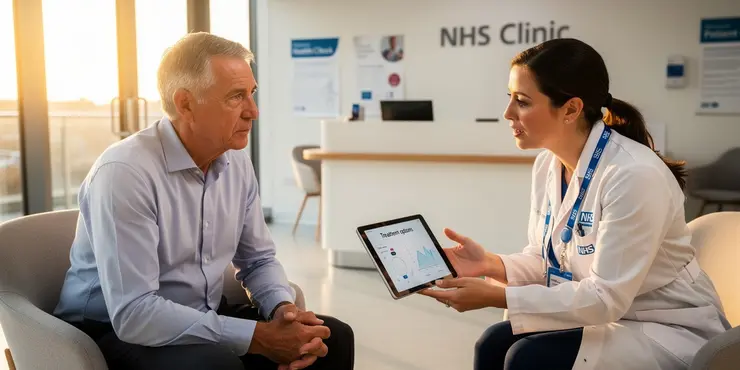
How is prostate cancer treated?
Relevance: 47%
-
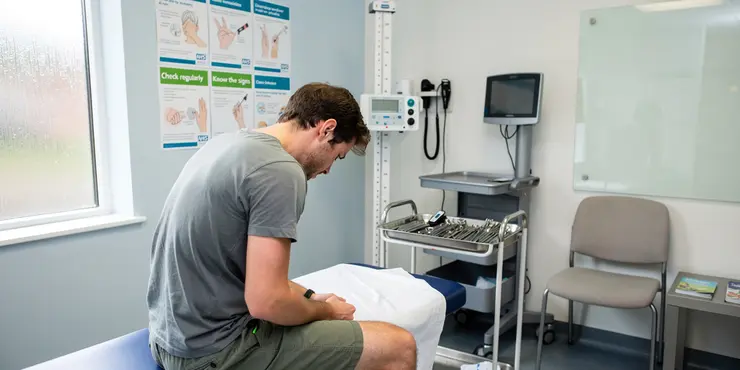
Who is at risk for testicular cancer?
Relevance: 47%
The importance of psychological help for cancer patients
Psychological help for cancer patients is an essential component of comprehensive cancer care, aimed at addressing the emotional, social, and psychological challenges associated with a cancer diagnosis and treatment. Here are some common forms of psychological support available for cancer patients:
- Individual Counseling: Individual counseling or psychotherapy involves meeting with a trained therapist to discuss feelings, concerns, and coping strategies related to cancer. Therapists can provide emotional support, help patients process their thoughts and emotions, and develop effective coping skills to manage stress, anxiety, depression, and other psychological symptoms.
- Support Groups: Cancer support groups bring together individuals who are facing similar challenges to share experiences, offer mutual support, and provide encouragement. Support groups may be led by healthcare professionals or facilitated by trained volunteers and can be conducted in person or online. Participating in a support group can help patients feel less isolated, gain insights from others' experiences, and build a sense of community.
- Couples or Family Counseling: Cancer diagnosis and treatment can impact not only the patient but also their loved ones. Couples or family counseling provides a supportive environment for patients and their partners or family members to communicate openly, address relationship issues, and navigate the challenges of cancer together.
- Cognitive-Behavioral Therapy (CBT): CBT is a structured form of psychotherapy that focuses on identifying and changing negative thought patterns and behaviors that contribute to psychological distress. CBT techniques can help cancer patients manage anxiety, depression, and other psychological symptoms by teaching coping strategies, relaxation techniques, and problem-solving skills.
- Mindfulness-Based Interventions: Mindfulness-based interventions, such as mindfulness-based stress reduction (MBSR) and mindfulness-based cognitive therapy (MBCT), teach patients to cultivate present-moment awareness, acceptance, and self-compassion. Mindfulness practices can help reduce stress, improve mood, and enhance overall well-being for cancer patients.
- Art Therapy: Art therapy involves using creative expression, such as drawing, painting, or writing, as a means of exploring emotions, reducing stress, and promoting psychological healing. Art therapy can provide a nonverbal outlet for cancer patients to process their feelings, express themselves, and find meaning in their experiences.
- Spiritual or Religious Counseling: For patients with spiritual or religious beliefs, seeking support from a spiritual or religious counselor can offer comfort, hope, and guidance during times of uncertainty and distress. Spiritual counseling can address existential concerns, provide spiritual coping strategies, and facilitate a sense of connection to something greater than oneself.
- Psychoeducation: Psychoeducation involves providing patients and their families with information about cancer, treatment options, coping strategies, and resources available for support. Education sessions led by healthcare professionals can empower patients to make informed decisions, alleviate fears and misconceptions, and promote a sense of control over their illness.
It's important for cancer patients to discuss their psychological needs and preferences with their healthcare team to access appropriate support services that address their individual concerns and promote holistic well-being throughout the cancer journey.
Don't Carry the Worry of Cancer with You | NHS
Understanding Cancer Risk and Prevention
Cancer is a significant health concern, but it is important not to carry unnecessary worry. The NHS provides numerous resources for understanding cancer risks, implementing preventive measures, and adopting a healthy lifestyle to reduce the likelihood of cancer. Regular screenings and check-ups are crucial for early detection and successful treatment outcomes.
NHS Screening Programmes
The NHS offers several screening programmes designed to detect cancer early, including breast cancer, cervical cancer, and bowel cancer screenings. These screenings can identify cancerous changes at an early stage when treatment is more likely to be effective. Participating in these programmes can provide peace of mind and reduce anxiety about potential cancer risks.
Access to Support Services
For those diagnosed with cancer, the NHS provides comprehensive support services, including access to medical professionals, counselling, and patient support groups. These resources aim to help patients manage their condition, make informed decisions about their treatment, and receive emotional support during their journey.
Healthy Lifestyle Choices
Maintaining a healthy lifestyle is one of the best ways to lower cancer risk. The NHS encourages quitting smoking, reducing alcohol consumption, eating a balanced diet rich in fruits and vegetables, exercising regularly, and maintaining a healthy weight. These lifestyle changes not only reduce the risk of cancer but also improve overall health and wellbeing.
Reliable Information and Resources
The NHS website offers a wealth of reliable information about cancer, including symptoms, treatment options, and preventive measures. By accessing accurate and trustworthy information, individuals can make informed decisions about their health and reduce unnecessary worry about cancer.
Final Thoughts
While cancer is a serious illness, it is important not to carry the constant worry of it with you. Utilize the resources and support provided by the NHS to stay informed, make healthy choices, and participate in recommended screenings. Early detection and a proactive approach to health can significantly reduce the burden of cancer-related anxiety.
Why Cancer Patients Need Emotional Support
Getting help for feelings and thoughts is very important for people with cancer. This help makes it easier for them to deal with feelings and problems that come with having cancer. Here are some ways cancer patients can get support:
- One-on-One Talking: Talking alone with a counselor can help. The counselor listens and helps with feelings and worries about cancer. They can teach ways to handle stress and feel better.
- Group Support: In support groups, people with cancer talk and help each other. These groups can meet in person or online. Being with others who understand can make patients feel less alone.
- Family Help: Sometimes, cancer affects the whole family. Talking together with a counselor can help family members support each other and solve problems together.
- Thinking and Feeling Better (CBT): CBT helps change bad thoughts into good ones. Learning new ways to think can make it easier to deal with worry and sadness.
- Mindfulness: Mindfulness means focusing on the "now" and being calm. It helps people with cancer feel less stress and more peace.
- Creative Expression: Doing art, like drawing or painting, helps express feelings. Art therapy is a good way to feel better without using words.
- Spiritual Guidance: Some people find comfort in their faith. Talking to someone from their religious community can give hope and support.
- Learning About Cancer: Knowing more about cancer can be helpful. It makes patients feel in control and less afraid. Nurses and doctors can provide this information.
Cancer patients should talk with their doctors and nurses about their feelings. They can help find the right support to make the cancer journey easier to manage.
Don't Carry the Worry of Cancer with You | NHS
Understanding Cancer Risk and Prevention
Cancer is a big health worry. But you don't need to worry too much. The NHS has lots of help to show you how to stay healthy. This can lower the chances of getting cancer. It's important to get check-ups to find cancer early. This helps treat it better.
NHS Screening Programmes
The NHS has checks for cancers, like breast, cervical, and bowel cancer. These checks find cancer early, which makes it easier to treat. Going for these checks can help you feel less worried about cancer.
Access to Support Services
If you have cancer, the NHS gives a lot of support. You can talk to doctors, get counselling, and join support groups. These services help you understand your condition, choose treatments, and get emotional help.
Healthy Lifestyle Choices
Living a healthy life can lower cancer risk. The NHS says stop smoking, drink less alcohol, eat fruits and vegetables, exercise, and keep a healthy weight. These choices make you healthier and lower the chance of cancer.
Reliable Information and Resources
The NHS website has lots of good information about cancer. You can learn about symptoms, treatments, and how to prevent cancer. Using this info helps reduce worry and make smart health choices.
Final Thoughts
Cancer is serious, but don't carry the worry with you all the time. Use NHS resources to learn, stay healthy, and get checked. Finding cancer early and making healthy choices can lower cancer worries a lot.
Frequently Asked Questions
What are the common symptoms of cancer?
Common symptoms of cancer can include lumps or swelling, unexplained weight loss, fatigue, pain, and changes in bowel or bladder habits, among others. If you notice any unusual changes, it's important to see a GP.
How can I reduce my risk of developing cancer?
You can reduce your risk by maintaining a healthy lifestyle that includes a balanced diet, regular exercise, not smoking, limiting alcohol intake, and protecting your skin from excessive sun exposure.
How important is early detection of cancer?
Early detection is crucial because it increases the chances of successful treatment. This is why it's important to attend regular screenings and report any unusual changes to your GP.
What should I do if I notice a potential symptom of cancer?
If you notice any potential symptoms of cancer, you should make an appointment with your GP as soon as possible. Early consultation improves the likelihood of timely diagnosis and treatment.
What types of screening are available on the NHS?
The NHS offers several types of cancer screening, including cervical screening, breast screening, and bowel cancer screening. Talk to your GP to find out if you are eligible for these screenings.
Is cancer hereditary?
While most cancers are not directly inherited, some cancers can be influenced by genetic factors. If you have a family history of cancer, you may want to discuss genetic testing options with your GP.
What lifestyle changes should I make to lower my cancer risk?
Adopting a healthy lifestyle is key. Quit smoking, eat a balanced diet rich in fruits and vegetables, engage in regular physical activity, limit alcohol consumption, and protect yourself from harmful UV radiation.
Can regular exercise reduce my risk of cancer?
Yes, regular exercise can help reduce the risk of several types of cancer. It helps maintain a healthy weight, boosts the immune system, and reduces inflammation in the body.
How does smoking contribute to cancer?
Smoking is one of the leading causes of cancer, particularly lung cancer. It introduces harmful chemicals into the body, which can damage DNA and lead to cancer.
What are the treatment options available for cancer?
Treatment options vary depending on the type of cancer and its stage. Common treatments include surgery, chemotherapy, radiation therapy, immunotherapy, and targeted therapy. Your healthcare provider will discuss the best options for your specific case.
Does diet play a role in cancer prevention?
Yes, diet plays a significant role in cancer prevention. A diet high in fruits, vegetables, whole grains, and lean proteins can help reduce cancer risk. It's also important to limit processed foods, red meats, and sugary drinks.
What should I expect during a cancer screening?
During a cancer screening, you may undergo a physical examination, imaging tests, or lab tests, depending on the type of screening. The process usually aims to detect cancer early, even before symptoms appear.
Why is it important to know my family medical history?
Knowing your family medical history can help assess your risk for certain types of cancers. It allows healthcare providers to recommend appropriate screenings and preventive measures.
What support is available for cancer patients in the UK?
The NHS provides a range of support services for cancer patients, including counseling, support groups, financial aid, and rehabilitation services. Macmillan Cancer Support and Cancer Research UK are also valuable resources.
How does age affect cancer risk?
Age is a significant risk factor for many types of cancer. The risk of developing cancer generally increases with age, making regular screenings and monitoring important for older adults.
What are the common signs of cancer?
Cancer is a sickness. Here are some common signs:
- Lump or bump in the body
- Tiredness all the time
- Weight loss
- Bleeding or bruises that do not go away
- Pain that does not get better
If you feel these signs, tell a doctor.
To understand better, you can:
- Ask someone to read with you
- Use a reading app
- Look at pictures about these signs
Cancer can have signs that show there might be a problem. These signs include lumps or swelling, losing weight without trying, feeling very tired, pain, and changes in going to the toilet (like pooping or peeing). If you notice something different about your body, it's a good idea to talk to a doctor.
How can I lower my chances of getting cancer?
Cancer is a disease. It happens when bad cells grow in the body. Here are some simple ways to stay healthy:
- Eat healthy food: Eat fruits, vegetables, and whole grains. Try to eat less sugar and fat.
- Move your body: Exercise helps keep your body strong. Try to be active every day.
- Don’t smoke: Smoking is very bad for your health. If you smoke, try to stop. Ask a grown-up or a doctor to help you.
- Limit alcohol: Drinking too much alcohol can be harmful. Try to drink less.
- Wear sunscreen: Protect your skin from the sun. Use sunscreen when you go outside.
- See the doctor: Go for check-ups. Your doctor can help keep you healthy.
If you find it hard to do these things, ask someone you trust for help. You can use reminders or set small goals to start.
You can stay healthy by doing some simple things. Eat a variety of foods, not too much of any one thing. Move your body every day, like playing or walking. Do not smoke cigarettes. Only drink a little alcohol if you choose to drink. When you go outside, wear a hat or sunscreen to keep your skin safe from the sun.
Why is it important to find cancer early?
Finding cancer early is very important. It can help doctors treat it better.
When doctors find cancer sooner, they have more ways to help. This can make people feel better faster.
If you think something is wrong, tell a doctor. They can help check and make sure you stay healthy.
Using tools like magnifiers for small text or voice-to-text programs can also help you understand better.
Finding problems early is very important. It helps doctors treat you better. This is why you should go to check-ups often. Also, tell your doctor if you notice anything strange with your health.
Here are some helpful tips:
- Use a calendar to remember your check-up dates.
- Bring a family member or friend to the doctor for support.
- Write down any changes you notice in your body to tell the doctor.
What should I do if I think I have a sign of cancer?
If you see something on your body or feel different and worry it might be cancer, here is what you can do:
- Tell a grown-up you trust. It could be a parent, teacher, or caregiver.
- Write down what you notice. You can use a notebook to keep track.
- Ask to see a doctor. They are people who can help you know what is happening with your body.
- Use pictures or drawings. They can help you explain how you feel to others.
Remember, it is always okay to ask for help. Grown-ups want to make sure you are healthy and happy.
If you see signs of cancer, go to your doctor quickly. Seeing your doctor early helps find and treat cancer sooner.
What health checks can you get on the NHS?
The NHS can give you different health checks to see if you are healthy. Here are some of them:
- Cancer checks: These look for signs of cancer.
- Baby checks: These are for newborns to make sure they are healthy.
- Heart checks: These check your heart and blood health.
If you need help understanding this, you can:
- Ask someone you trust to explain.
- Use pictures or videos to learn more.
- Talk to your doctor or nurse.
The NHS can help check for cancer in different ways. They look for signs of cancer in the cervix, breasts, and bowels. You can ask your doctor if you can have these checks.
Can cancer run in families?
Sometimes, cancer can run in families. This means that if someone in your family had cancer, you might have a higher chance of getting it too.
If you are worried about cancer in your family, you can talk to a doctor. They can help you understand your risks and what you can do.
Using pictures or videos can help explain more about how cancer works. You can ask a family member or friend to help you find these tools.
Most cancers do not come straight from your parents. But some can be affected by genes you get from them. If people in your family have had cancer, it's a good idea to talk to your doctor. They can tell you about tests that might be helpful.
What can I do to be healthier and lower my chance of cancer?
Here are some simple things you can do:
- Eat lots of fruits and vegetables. They are good for you.
- Exercise a little every day, like playing outside or dancing.
- Try not to smoke. Smoking is bad for you.
- Don't spend too much time in the sun without sunscreen.
- Go to the doctor for check-ups to stay healthy.
You can also talk to an adult or use pictures to understand better. Remember, taking little steps can help you stay healthy!
It is important to live a healthy life. Here are some tips:
- Stop smoking. It is not good for you.
- Eat healthy food like fruits and vegetables.
- Exercise often. It helps you stay strong.
- Do not drink too much alcohol.
- Stay safe from the sun. Wear sunscreen and hats when you're outside.
If reading is hard, you can try using audio books or colored overlays to help. Take your time and ask someone to help if you need.
Can exercise help lower my chances of getting cancer?
Exercise means moving your body. Things like walking, running, or playing sports.
Moving your body regularly can help keep you healthy.
It can make your chances of getting cancer smaller.
Talk to your doctor about exercises that are good for you.
You can also use tools like activity trackers to help you remember to move.
Yes, doing exercise often can help stop some cancers from happening. Exercise helps you stay at a good weight, makes your body's defenses stronger, and reduces swelling inside your body.
How does smoking cause cancer?
Smoking can make you sick. It can cause cancer.
Cigarettes have bad stuff in them. This bad stuff can hurt your body.
The bad stuff can make some cells in your body grow too much. This can cause cancer.
If you need help, talk to a doctor or use a stop smoking app.
Smoking is bad for your health. It can cause cancer, especially in the lungs. When you smoke, bad chemicals go into your body. These chemicals can hurt your body and make you sick.
If you want to stop smoking, you can ask a doctor for help. You can also use things like chewing gum or patches that can help you quit. Talking to a friend or joining a support group might also make it easier to stop smoking.
What are the ways to treat cancer?
Cancer can be treated in different ways.
Here are some ways:
- Medicine: Doctors may give you medicine to help fight cancer.
- Radiation: Special rays are used to kill cancer cells.
- Surgery: Doctors may take out the cancer cells from your body.
- Therapy: You might talk to someone or do exercises to feel better.
If you need help understanding cancer or treatment, ask someone you trust or use tools like pictures or videos that explain things in a simple way.
There are different ways to treat cancer. It depends on what type of cancer it is and how much it has spread. Here are some common ways to treat cancer:
- Surgery: Doctors might do an operation to take out the cancer.
- Chemotherapy: This treatment uses strong medicine to kill cancer cells.
- Radiation Therapy: This uses special rays, like X-rays, to kill cancer cells.
- Immunotherapy: This helps your body’s own defenses fight the cancer.
- Targeted Therapy: This treatment uses medicine to attack only the cancer cells.
Your doctor will talk with you to decide the best treatment for you.
They can also help you understand what each treatment does.
Tip: A friend or family member can help you when talking to the doctor.
They can write down what the doctor says and ask questions too.
Can what we eat help stop cancer?
Yes, what you eat can help stop cancer. Eating lots of fruits, vegetables, whole grains, and lean meats can keep you healthy. Try not to eat too much junk food, red meat, or sugary drinks.
What happens at a cancer check-up?
When you go for a cancer check-up, doctors look for signs of cancer. This check-up is to make sure you are healthy.
Here are some things that might happen:
- The doctor might ask you questions about how you feel and your family health history.
- You might have to give a blood sample for testing.
- The doctor might use a special machine to take pictures inside your body.
These check-ups help find cancer early, so it can be treated.
If you have questions, you can ask your doctor. You can also bring someone with you to the check-up for support.
When you get checked for cancer, doctors might look at your body, take pictures inside your body, or do some tests with blood or urine. Which one you get depends on the type of cancer they're checking for. The main goal is to find cancer early, before you feel sick.
Supportive tool: If reading is hard, you can use audiobooks or ask someone to read with you. That can make it easier to understand.
Why should I know about my family's health history?
Knowing about your family's health can help doctors understand your health better. They can find out if you are more likely to get certain illnesses.
Learning about family health can also help you take steps to stay healthy. You can eat good food, exercise, and visit the doctor regularly.
You can ask family members about any health problems they have had. Try writing it down or using pictures to help remember. You might also ask a doctor or nurse for help.
Knowing about your family’s health can help doctors see if you might get certain kinds of cancer. They can tell you the best checks and ways to stay healthy.
What help can people with cancer get in the UK?
If you have cancer, there are people and places that can help you. Here are some ways you can get help:
- Doctors and Nurses: They give you medicine and take care of you.
- Support Groups: You can talk to others who have cancer and share your feelings.
- Charities: Groups like Macmillan or Cancer Research UK can give you advice and support.
- Counselors: You can talk about your worries to someone who listens and helps.
It is important to talk to someone if you need help. You are not alone.
The NHS helps people with cancer. They offer things like talking to a counselor, joining groups to meet others, help with money, and exercises to feel better. Macmillan Cancer Support and Cancer Research UK are also great places to get more help.
How does getting older change your chances of getting cancer?
Getting older makes the chances of getting cancer higher. This is why it is important for older people to have regular check-ups to catch cancer early.
Useful Links
This website offers general information and is not a substitute for professional advice.
Always seek guidance from qualified professionals.
If you have any medical concerns or need urgent help, contact a healthcare professional or emergency services immediately.
Some of this content was generated with AI assistance. We’ve done our best to keep it accurate, helpful, and human-friendly.
- Ergsy carfully checks the information in the videos we provide here.
- Videos shown by Youtube after a video has completed, have NOT been reviewed by ERGSY.
- To view, click the arrow in centre of video.
- Most of the videos you find here will have subtitles and/or closed captions available.
- You may need to turn these on, and choose your preferred language.
- Go to the video you'd like to watch.
- If closed captions (CC) are available, settings will be visible on the bottom right of the video player.
- To turn on Captions, click settings .
- To turn off Captions, click settings again.
More Items From Ergsy search
-

Don't carry the worry of cancer with you | NHS
Relevance: 100%
-

Worried about signs that could be cancer? Contact your GP practice | NHS
Relevance: 97%
-

Tick Bites: Should you be worried?
Relevance: 65%
-

What is cancer screening?
Relevance: 58%
-

My friend has received their status update, and I haven't. Should I be worried?
Relevance: 56%
-

Skin Cancer - How do I check if my mole is skin cancer? | NHS
Relevance: 55%
-

How to do the FIT bowel cancer screening test | Cancer Research UK
Relevance: 53%
-

What is Cancer?
Relevance: 52%
-

Can prostate cancer recur after treatment?
Relevance: 52%
-

Vaginal Cancer
Relevance: 52%
-

Ovarian Cancer
Relevance: 52%
-

Endometrial Cancer
Relevance: 52%
-

Vulval Cancer
Relevance: 52%
-

Endometrial Cancer
Relevance: 52%
-

Endometrial Cancer
Relevance: 51%
-

What is the difference between colon cancer and rectal cancer?
Relevance: 51%
-

Are younger people being diagnosed with bowel cancer more frequently?
Relevance: 50%
-
What is testicular cancer?
Relevance: 49%
-

What is colorectal cancer?
Relevance: 49%
-

What is Bowel Cancer?
Relevance: 49%
-

Treating prostate cancer
Relevance: 49%
-

Mouth Cancer Awareness
Relevance: 49%
-

What is testicular cancer?
Relevance: 49%
-

What is Prostate Cancer?
Relevance: 49%
-

What is testicular cancer?
Relevance: 49%
-

Is testicular cancer treatable?
Relevance: 49%
-

Skin cancer education
Relevance: 49%
-

Living with prostate cancer
Relevance: 49%
-

What is Pancreatic Cancer?
Relevance: 49%
-

Mouth Cancer Infomercial
Relevance: 49%
-

Breakthrough in Cancer Treatment Offers Hope for Prostate Cancer Patients
Relevance: 48%
-

How can I test myself for colorectal cancer?
Relevance: 48%
-

AI Breast Cancer Screening in the UK
Relevance: 48%
-

How common is testicular cancer?
Relevance: 47%
-

What causes testicular cancer?
Relevance: 47%
-

What is a skin cancer screening?
Relevance: 47%
-

Raising awareness of ovarian cancer
Relevance: 47%
-

What are the stages of testicular cancer?
Relevance: 47%
-

How is prostate cancer treated?
Relevance: 47%
-

Who is at risk for testicular cancer?
Relevance: 47%


